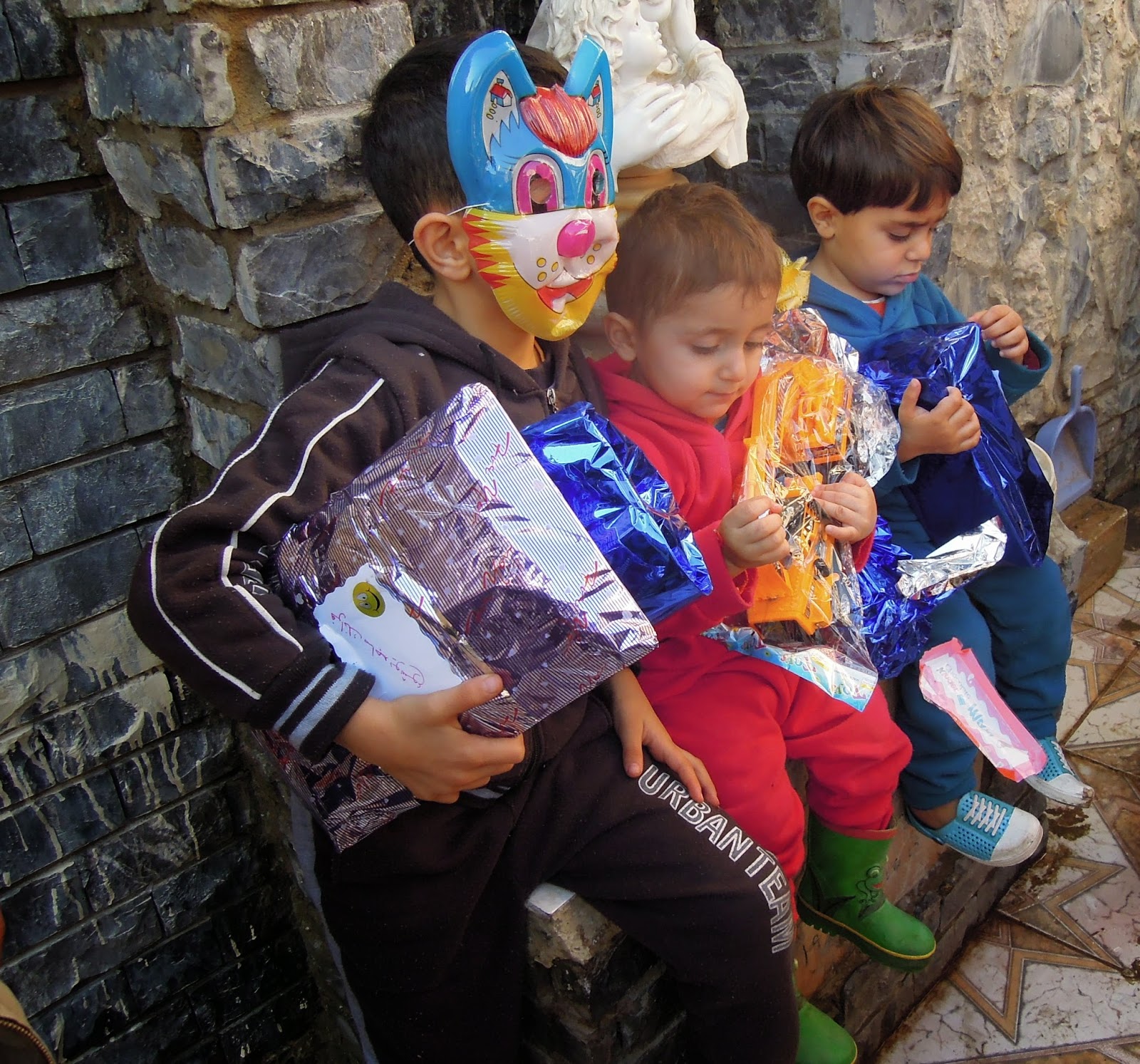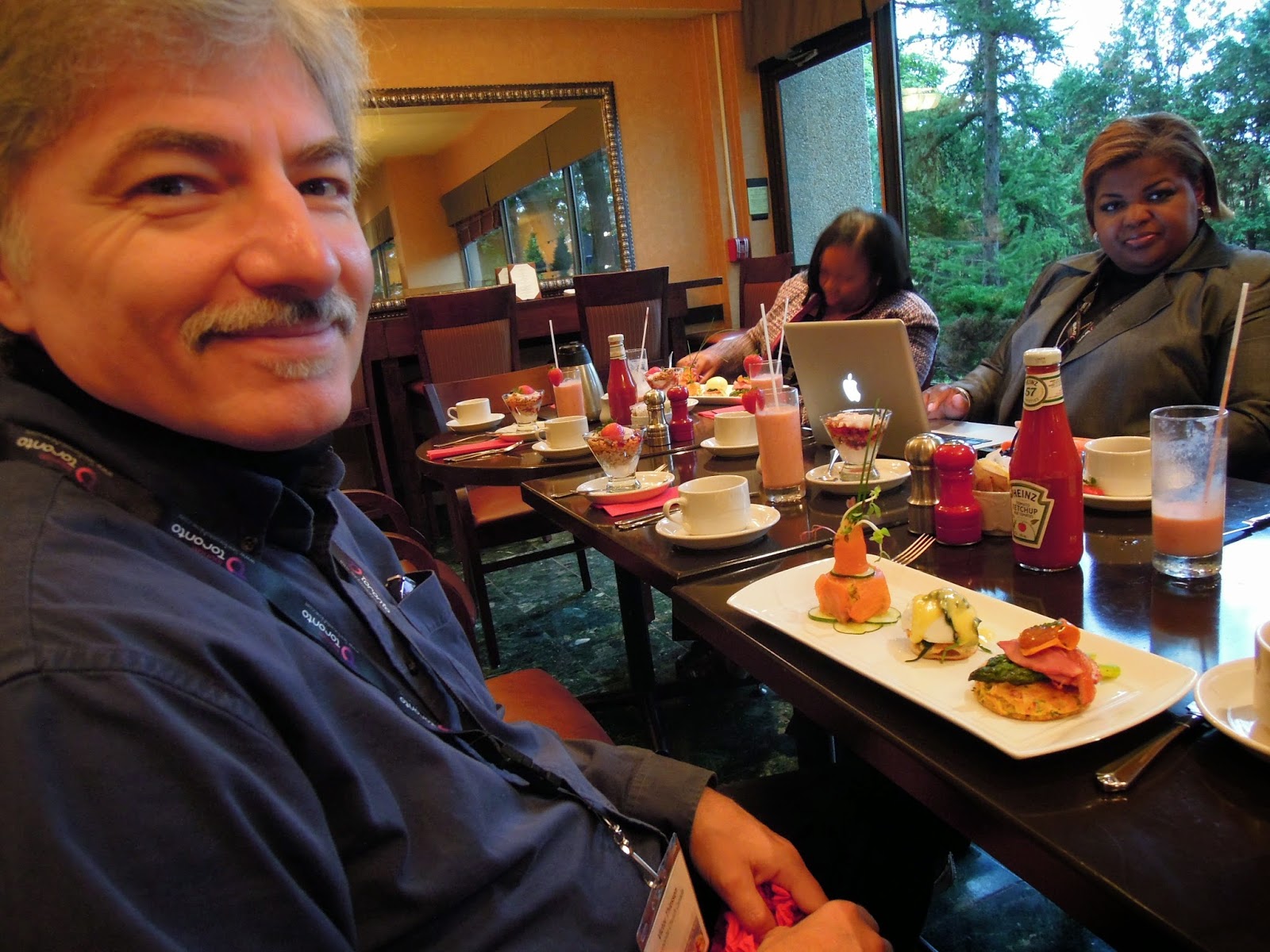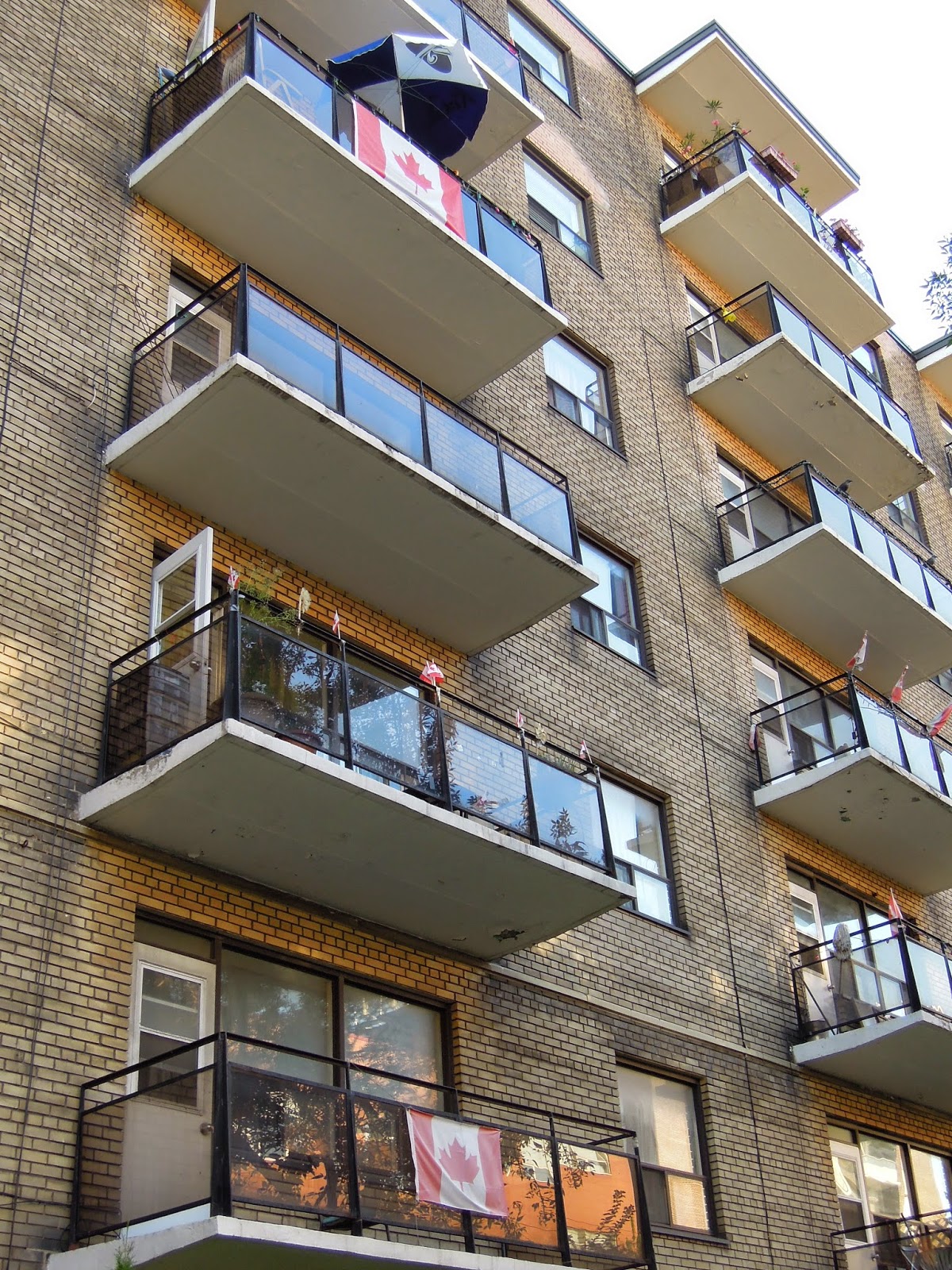On December 25 the environment in the little monastery has settled down. Each family has a tiny cubicle separated by blue and green striped canvas. Father Jens says that he has enough funding right now to feed everyone for four months. Long plastic sheeting creates a windbreak and a place for the older children to have school on days when it is not Christmas. This may be the situation for a long time. The Christians are not going back to Qaraquosh anytime soon, if ever.
On Christmas Day the monastery offered an English mass. People from many different countries came to sit on the straight benches in the portion of the sanctuary that is still held to be the worship space, a place for the sacred that is different yet similar to the holy space that gives rest to the wandering ones.
Throughout the service women slipped silently in and out of the little living spaces: gathering food for their family or removing dirty dishes. The room was suprisingly quiet considering how many were housed there, broken only by the occasional small person's voice. And we sat listening to the ancient stories of the prophets predicting that someday nations would not learn war anymore.
It brought to my mind the story of the full inn or house in Bethlehem. People, people everywhere, trying to get along, trying to survive conditions that are so less than ideal. But as Father Jens pointed out, this is not an unusual situation in Iraqi Kurdistan, in the Middle East, or in the whole wide world.
When the mass was over we were all invited to join the families for a cup of tea. I had made two large German stollen as a gift for Jens so they were cut into little pieces and served to everyone who wanted one. It felt a little like the loaves and fishes only there were not even crumbs left at the end.
Before I left the courtyard with my friend Ann, Father Jens asked how it was for me to be alone at Christmas. "You know, if you need company or a community we do have a guest room open. You could come to stay here with us all." I thanked him gratefully.
A few months ago my team interviewed Father Jens. The short video, Father Jens on Christianity,
Islam and ISIS violence in Iraqi Kurdistan, can be found here.
.























































